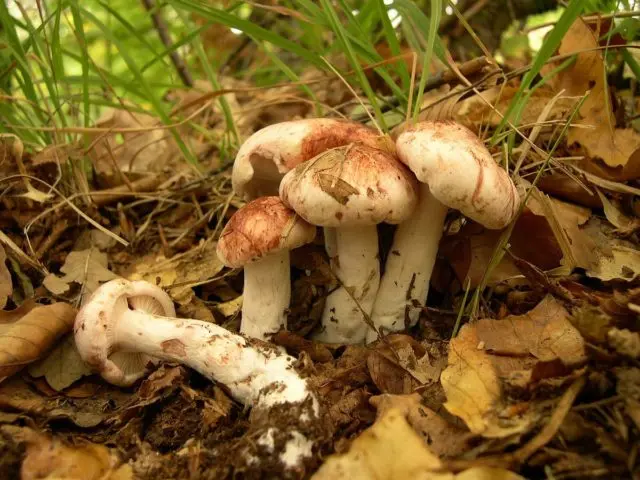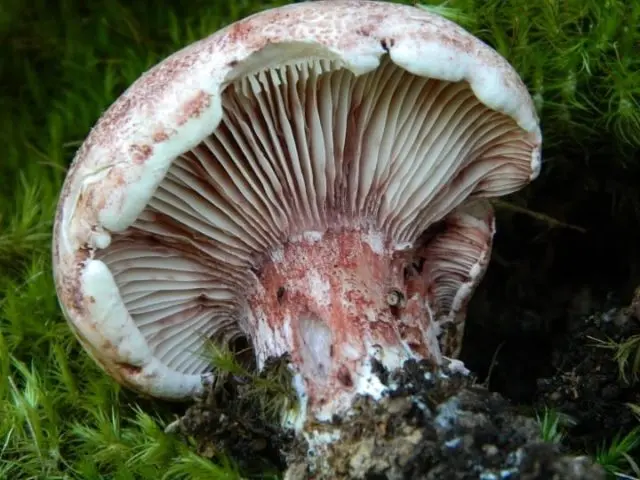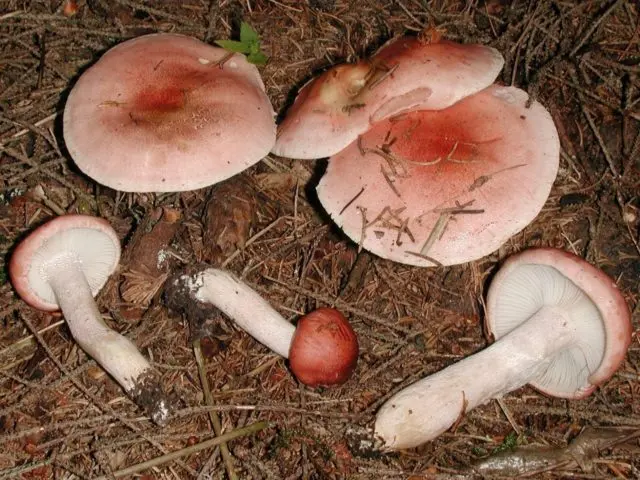Contents
Hygrophorus russula or russula (Hygrophorus russula) lamellar fungus-basidiomycete, a representative of the genus Hygrophorus of the family Hygrophoraceae. It received the specific name because of its external similarity with russula.

Among mushroom pickers, it is also known as cherry, most likely due to its color.
What does russula hygrophorus look like
Fleshy, large mushroom of dark pink or purple color. The hat is strong, large, about 5-15 cm in diameter. The surface is fibrous, often covered with radial cracks. In young specimens, the shape of the cap is convex, becoming prostrate with age, sometimes with a tubercle and thickening in the center. Its edges are slightly tucked up to the leg. The surface of the cap is slippery, sticky. Its color in all mushrooms is uneven.
The leg is quite long – 5-12 cm, about 1-4 cm thick. It is never hollow. The shape is cylindrical, mostly tapering downwards. The leg expands at the base quite rarely. Its surface is smooth, dry, in the upper part there is a slight pubescence.

The color of the legs can be pink or purple, this is one of the main characteristics that distinguishes the look from a simple russula
The pulp is white, rather dense. Contacting with air, it changes color, becomes dark red. The hymenophore plates are frequent, descending on the stem. The colors are white, becoming reddish or purple as they grow. Spores are ovoid, medium in size. Spore powder is white.
Where does hygrophorus russula grow?
Grows in mountainous or hilly areas. Prefers broad-leaved and mixed stands. Forms mycorrhiza with oak and beech. Likes soils covered with moss.
Is it possible to eat hygrofor russula
Russula hygrophorus is an edible mushroom, 4 categories of nutritional value. It is practically tasteless, has a faint, powdery smell.
False doubles
The twin of the fungus is the blushing hygrophore. Also an edible species, which can be distinguished by the following features:
- smaller caps;
- longer leg;
- dome-shaped hat;
- bitter taste;
- the presence of mucus and purple scales on the cap.

The double has a more bitter taste, although it also belongs to the category of edible mushrooms and is completely safe.
Collection rules
The russula hygrophore grows in small groups during a favorable period for it. Fruiting time – August-October. Sometimes picking by mushroom pickers is carried out until the first snow falls.
Use
The mushroom has no special gastronomic value. It can be boiled, fried, dried, marinated. Often these mushrooms are used to make sauces, side dishes, soups. In view of the not too bright taste qualities, most often the russula hygrophore is preserved together with other mushrooms.
Conclusion
Russula hygrophorus is a valuable, nutritious and healthy mushroom. It is not very common in forests, but it can be easily grown at home, in your backyard. The mushroom has a pleasant taste. In terms of taste, it is considered the best among all members of the family. It can be consumed fresh, as well as harvested for the winter in various ways.









